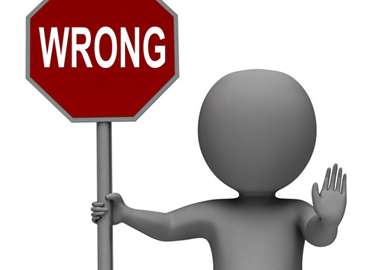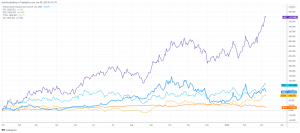 Salespeople are competitive. They hate to lose. Giving up or walking away from a potential deal is not in the salesperson’s DNA. However, part of being a great salesperson is knowing when to walk away from a potential opportunity.
Salespeople are competitive. They hate to lose. Giving up or walking away from a potential deal is not in the salesperson’s DNA. However, part of being a great salesperson is knowing when to walk away from a potential opportunity.
It may seem counterintuitive, but knowing when to walk away from a sale is just as important to your sales strategy as executing the prime opportunities.
Time is Money
A sales process is an investment of time, with an intended return in the form of revenue and relationships. Time is also limited. If a rep dedicates way too much time on a low-potential prospect, he/she will miss opportunities to get in front of better prospects. Your salespeople need to understand the value of walking away from a deal that won’t happen. How do you get your reps to do that? With effective qualification.
That point may seem obvious, but too many sales organizations fail to develop a qualficiation process that gives their reps the tools to know when to walk away. A better qualification process helps reps in a number of ways, including:
- More qualified opportunities
- Higher win rates
- Shorter sales cycles
- Improved use of resources
- Better implementation and transition to delivery teams
Putting definition around customer verifiable outcomes and stages around the entire sales process drives scalable growth. Applying consistent qualification criteria is also vital to time management and sales efficiency.
Customized and defined planning tools should focus your reps on quantifying the prospect’s pain, uncovering a compelling event, defining the business impact and determining the key players that are invested in the decision. Without those key elements, it will be difficult to distinguish the opportunities that will move forward from those that will fall flat.
The first step towards improving your sales process and how your reps qualify is to assess where you are now. Here‘s a list of questions to ask about your organization:
- How hard or easy are we to buy from?
- What do customers say about this and how we sell?
- How does our sales process support their selling effectiveness?
- How do our best performers sell? What are the best practices?
Be sure to also assess how your sales process empowers your salespeople.
- How does it help them align with their customer’s buying process?
- Does it help them articulate value and differentiation throughout that buying journey?
- How does it facilitate an accurate forecasting process?
- How does it ensure that our salespeople are able to maximize their time spent selling?
If you really want to drive change with an improved sales process, you need to focus on the execution of it with your sales team. Qualifying and advancing leads requires your processes to be well-defined and consistently reinforced. Giving your reps the tools to help them walk away from a sale is just as critical.
Business & Finance Articles on Business 2 Community
(30)
Report Post



